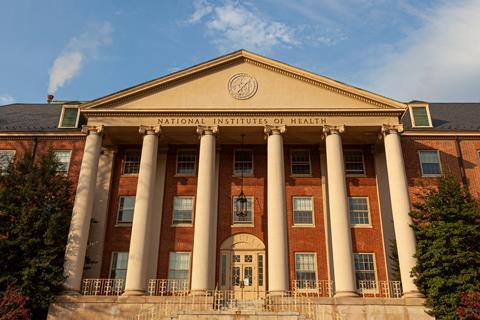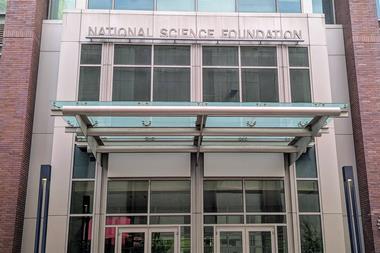The National Institutes of Health (NIH) will implement its open access policy six months earlier than planned. The rule requires its grantees to make all their publications involving research partially or entirely funded by the agency immediately and freely accessible, along with the supporting data. Reaction to the announcement was mixed.
The new Public Access Policy, issued during the Biden administration, will now go into effect on 1 July, rather than the original target of the end of 2025. The fast-tracked rule applies to final, peer-reviewed articles accepted for publication in a journal on or after 1 July that are funded in part or fully by the NIH. Included is supplemental material that supports the publication, such as detailed methods and additional figures.
A similar executive order was circulated by the Trump White House in late 2019, but stakeholders, including journal publishers, publicly opposed a leaked version before it was ever released.
The original policy from 2008 allowed up to 12 months before NIH-funded papers had to be made publicly available, but the NIH revised the regulation under President Biden in 2024 to remove that embargo period in order for researchers, students and members of the public to have quicker access to these findings.

The NIH said it has moved up the policy’s implementation because the public pays for the research it supports and, therefore, is entitled to see the results without delay. ‘Institutions and researchers have already been complying with NIH’s public access provisions for almost 20 years, with more than 1.5 million articles made freely available through PubMed Central,’ the agency explained. It also suggested that the current policy allowing for a 12-month embargo period ‘prevents timely access necessary for catalysing new breakthroughs’ that will benefit all Americans.
‘Since the infrastructure to support this change is already in place and there is a free pathway to comply, NIH decided to accelerate the timeline to make good on the public’s investment in NIH-supported research’, the NIH argued.
But the Council on Governmental Relations (COGR), which is an association of US research universities and affiliated medical centres, is concerned. ‘Today’s announcement is a significant setback for effective implementation and compliance with this policy,’ stated the organisation’s president Matt Owens on 2 May. ‘This new effective date will impose extra burdens on researchers and their institutions to meet the deadline,’ he warned.
Although the COGR supports the policy’s goals, Owens said the new deadline ‘completely disregards’ the public comments NIH solicited in August 2024. He suggested that the agency is accelerating implementation of this policy at the same time as it is also adding new ‘burdensome certification and financial reporting requirements for grant recipients’, which runs counter to the Trump administration’s stated goal of reducing regulations.
The Association of American Publishers (AAP) offered a qualified welcome for the development. ‘Ensuring the United States remains a leader in the sciences is a top priority for the AAP member journals who employ tens of thousands of Americans in support of their mission to curate and publish world-class research,’ stated Carl Maxwell, the organisation’s senior vice president of public policy. ‘While expediting the deadline for NIH open access mandates will likely create disruptions for both researchers and journals as they move to adapt, we look forward to continued discussions about the most effective means of growing our nation’s scientific leadership, while at the same time protecting the integrity of the critically important peer-review process.’

















No comments yet